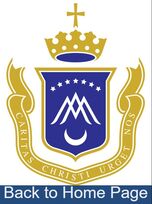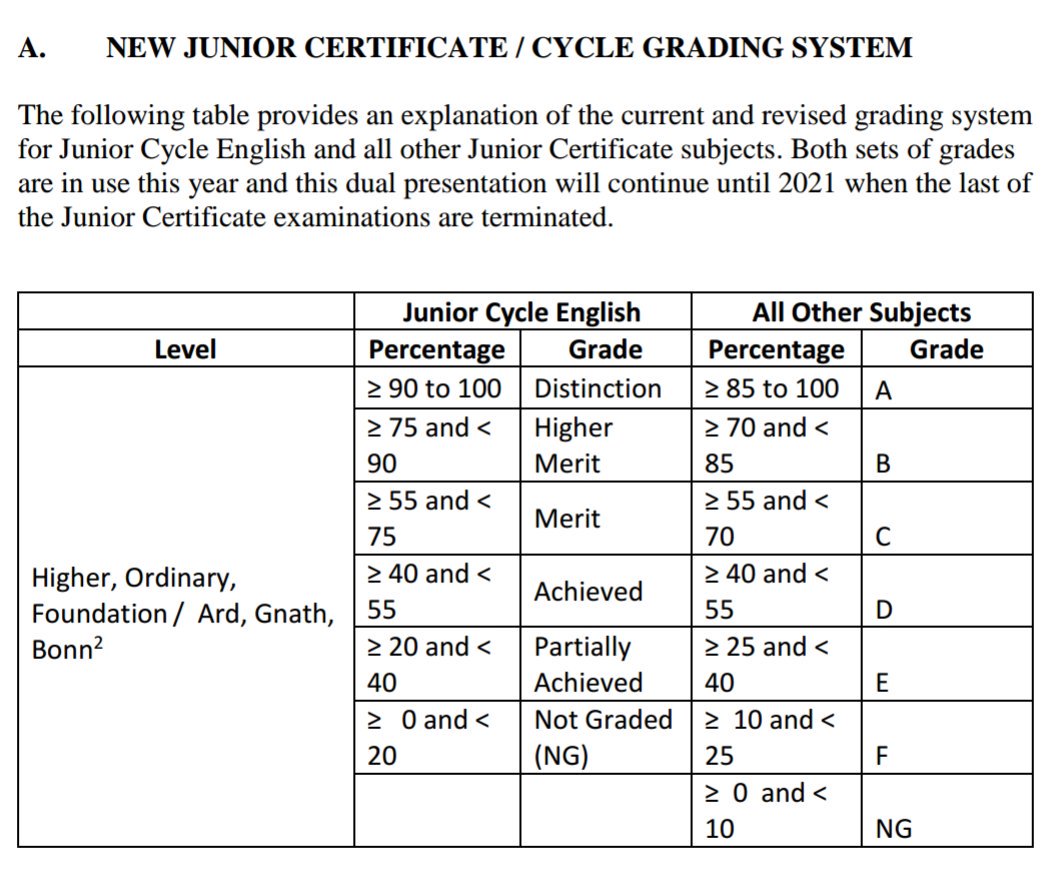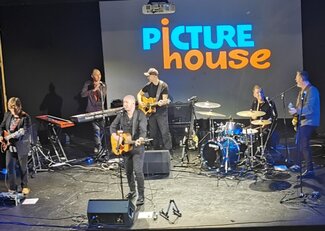Music Appreciation
Music is one of the ways we make sense of our lives, one of the ways in which we express feelings when we have no words, a way for us to understand things with our hearts when we can't with our minds. Music allows us to move around those big, invisible pieces of ourselves and rearrange our insides so that we can express what we feel even when we can't talk about it.
The study of music offers lifelong opportunities to develop the imagination in unique ways, through listening to familiar and unfamiliar works, coming to know and understand sounds internally, creating sound pictures or stories and expressing feelings and emotions in sound.
The study of music offers lifelong opportunities to develop the imagination in unique ways, through listening to familiar and unfamiliar works, coming to know and understand sounds internally, creating sound pictures or stories and expressing feelings and emotions in sound.
Many students think that you should only study music if you seem to have a real gift for it, but the truth is, anyone and everyone can study music. In fact, studying music, regardless of your musical skill level, has a number of mental and psychological benefits to offer.
In studying music, students are made aware of how music contributes to the social, historical, technological, economic and cultural life of society. This important value permeates the teaching and learning of the course at both Junior and Senior Cycle. In this way, students come to realise the vocational significance of learning performing, composing and listening.
In studying music, students are made aware of how music contributes to the social, historical, technological, economic and cultural life of society. This important value permeates the teaching and learning of the course at both Junior and Senior Cycle. In this way, students come to realise the vocational significance of learning performing, composing and listening.
Brief Outline Of Music
Junior Cycle
The specification for Junior Cycle Music focuses on giving students the opportunity to develop their musical knowledge, skills and cultural awareness through the practical and cognitive engagement with music. This can be achieved through the three interconnected strands: Procedural Knowledge, Innovate and Ideate and Culture and Context. A student will experience learning in each of these three strands as they progress through their Junior Cycle.
The development of procedural knowledge involves developing a vocabulary in music by learning and using symbols to represent sound, exploring and responding to expressive qualities in music and imagining and creating short musical motifs and soundscapes. It also involves experimenting with elements of music such as pulse, duration, tempo, pitch, dynamics, structure, timbre, texture, style and tonality.
Students will innovate and ideate through composing/arranging and performing music for specific purposes, experimenting with music to communicate ideas derived from a variety of stimuli, and collaborating with others to develop and extend musical ideas.
The understanding of music in context and its cultural positioning helps to shape our ability to create, participate and appraise the music we engage with. Students will investigate the contextual and cultural environments that impact on purpose and intent in music.
Junior Cycle has two CBA’s (Classroom-Based Assessments)
One in Second Year.
One in Third Year.
At the end of Third Year, there is a written common level examination.
One in Second Year.
One in Third Year.
At the end of Third Year, there is a written common level examination.
Junior Cycle Music Topics Include:
- Elements of Music
- Music History and development of music
- Instruments of the Orchestra
- Basic Compositional technique
- Performance skills
- Traditional Irish music
- Graphic scores
- Found sound composition
- Music analysis
- Music business
- Music in Advertising
- Group performance and compositional projects.
Over the three years of Junior Cycle, students will be provided with the opportunity to stimulate their creativity, explore the expression and communication of their ideas, and develop an understanding of how music can teach us so much about cultures and societies. The Classroom-Based Assessments link to these priorities for learning and teaching in music.
Classroom-Based Assessments will provide an opportunity and vehicle for students to:
- Collaborate with others on creative endeavours
- Research information using an appropriate variety of methods
- Express themselves in a non-verbal context
- Communicate effectively and with confidence
- Develop an understanding of the relationship between music and societies
- Reflect on their progress and their musical choices.
CBA 1 – May of Second Year – Compositional portfolio
Two pieces selected from portfolio for assessment.
The focus of this assessment activity will be on the creation of a set of musical compositions which might include the following options:
Two pieces selected from portfolio for assessment.
The focus of this assessment activity will be on the creation of a set of musical compositions which might include the following options:
- Responding to an auditory or visual stimulus
- Arranging an existing piece of music
- Answering phrases(s) to an existing phrase
- Adding music to text
- Responding to a story or text
- Creating an advertisement jingle
- Devising a piece of electro-acoustic music
- Music for a school event
- Music as a response to a personal experience.
CBA 2 – March of Third Year – programme note based on performance pieces selected for examination.
The programme note could include:
The structure of the programme note will be influenced by many factors, and students are offered flexibility in allowing for different degrees of emphasis to be focused on different musical elements and features.
The programme note could include:
- A brief introduction to the composers/songwriters
- A description about the historical context of the pieces and the circumstances surrounding the composition
- One interesting musical point in each piece for the audience to listen out for
- Famous exponents of a tune or an instrument
- The student’s role in a group performance
The structure of the programme note will be influenced by many factors, and students are offered flexibility in allowing for different degrees of emphasis to be focused on different musical elements and features.
The Junior Cycle CBA grades are as follows:
- Exceptional
- Above expectations
- In line with expectations
- Yet to meet expectations
- Not reported
Practical Examination - Easter of Third year. Two pieces of your choice for examination, with a short unprepared sight-reading test.
The practical examination will be allocated 30% of the marks available and will be marked by the State Examinations Commission (SEC).
The practical examination will be allocated 30% of the marks available and will be marked by the State Examinations Commission (SEC).
Written Examination – June of Third year – Common level exam.
This paper will be set and marked by the SEC and will be allocated 70% of the marks for the final assessment. The examination will be of one and a half hour’s duration and will take place at the end of third year. During this assessment, students will be required to engage with, demonstrate comprehension of, and provide written responses to stimulus material.
This paper will be set and marked by the SEC and will be allocated 70% of the marks for the final assessment. The examination will be of one and a half hour’s duration and will take place at the end of third year. During this assessment, students will be required to engage with, demonstrate comprehension of, and provide written responses to stimulus material.
Transition Year Music
Transition Year offers the chance to explore music not on the syllabi, as well as introduce the subject to students who did not take it for Junior Cycle, but may be considering it for the Leaving Certificate.
TY Music topics include:
- Elements of music
- Introduction to Harmony
- Practical music and performance
- Group music projects
- History of Music in Film
- TY Musical preparation
TY Music is assessed both formatively and summatively, by means of class tests and group work assessment, as well as through oral feedback and commentary reports.
Senior Cycle
Leaving Certificate Music involves a series of interrelated musical activities within each of the three core areas of musical experience - performing, composing and listening. In performing, students choose from a variety of individual and/or group performing activities. In composing, students develop an understanding of musical structure and form, while the listening component provides for rich aural experiences through exposure to music of different periods, styles and genres.
The structure of the syllabus follows the Junior Certificate outline with three essential activities in performing, composing, and listening. Supporting skills and studies, e.g. music reading, analysis, dictation, historical and contextual knowledge, are included under one or more of these headings. Each student is required to study all three essential activities.
Each essential activity is allocated a 25 per cent weighting. The remaining 25 per cent can be chosen as follows:
At Ordinary level, students will choose one of the three activities to represent 50 per cent:
Performing 50% Composing 25% Listening 25%
or
Performing 25% Composing 50% Listening 25 %
or
Performing 25% Composing 25% Listening 50%
Performing 50% Composing 25% Listening 25%
or
Performing 25% Composing 50% Listening 25 %
or
Performing 25% Composing 25% Listening 50%
At Higher level, students undertake additional studies in one of the three activities:
Performing Composing Listening One Higher Level Elective
25% 25% 25% 25%
Performing Composing Listening One Higher Level Elective
25% 25% 25% 25%
The modes of assessment already in use for Leaving Certificate music will continue to be used to examine this syllabus, i.e.
- A practical examination
- A written examination
- An aural examination
Performance - Examined in April of Sixth Year
Listening Paper - Examined in June of Sixth Year - 90 Minute duration
Composition Paper - Examined in June of Sixth Year - 90 Minute duration
Listening Paper - Examined in June of Sixth Year - 90 Minute duration
Composition Paper - Examined in June of Sixth Year - 90 Minute duration
Senior Cycle Music Topics Include:
- Compositional skills
- Harmony and counterpoint
- Aural skills
- Traditional Irish music
- Prescribed works for aural analysis
- Practical music and performance skills
- Music technology
- Sight-reading
It is possible to take up music as a subject for the Leaving Certificate even if you did not take it at Junior Cycle level
- You need to be able to perform on an instrument or sing, and be willing to work on your performance towards your practical exam.
- The skill of reading music is essential to Leaving Cert music. This can be learned in class over the two years.
Reasons for choosing Music:
- I am interested in music… I love music!!
- I did it for JC and want to continue…
- I have been playing an instrument / instruments…
- I have been singing…
- I have been in a choir, a band, etc..
- Music is ‘ points friendly ’ !!
- I am interested in a career involving music.
School Music Activities Include:
- Musical
- Talent show
- Trips to the National Concert Hall
- Choral concerts
- Emmanuel concert
- Christmas Carol service
Music in the Real World
Music is a universal language that connects people all over the world. It has no borders or boundaries, so it’s easy for us with our differences to find common ground.
Music plays an important role in the world as it helps us express ourselves. It can have many different impacts on our daily lives.
Music plays an important role in the world as it helps us express ourselves. It can have many different impacts on our daily lives.
It has been proven that music plays a key role in brain development. This is because it helps with the nurturing of language, motor skills, and emotional intelligence. The rhythm of the music also helps children develop coordination, timing and has been proven to help sensory integration, which is important for developing fine motor skills.
Music can help reduce anxiety and stress and has been shown to improve moods in people with depression, post-traumatic disorder (PTSD), and autism spectrum disorders. It’s also proven that music therapy helps patients recover from strokes more quickly than those who don’t have the treatment. Music can also be described as a therapy for many people because it has certain psychological healing powers. Music therapy has been increasingly used in the treatment of problems like dementia, depression, anxiety, trauma, etc.
Music can be defined as a form of art that requires creative skills and great imagination power similar to other forms of art. Music can bring a sense of relief and reduce the struggle of our daily life. It can be a good escape to calm your mind. A calm mind can increase our self-confidence and make us a kind and positive person.
Music can transform emotions and feelings, it can lessen stress, pain, struggle, distraction and bring positivity and calmness in our daily life. Music holds the power to bring people together in different ways. Music can make us expressive and help us in understanding our feelings and emotions in a better manner. One final reason why music is important is quite simply it’s enjoyable and brings us pleasure.
Careers in Music:
Songwriting / Publishing / Advertising / Musician / Music Directing / Choreographer
Music Engineering / Studio Technician / Concert Promoter / Live Music Agency
Management / Record Company A and R / Music Legal / Promotion / Music Production
Orchestration / Music Editing / Artist / Music Education / Music Therapy
Choral Director / Conductor / Music Journalism / Live Sound Technician / Live Crew
Musical Theatre / Stage Management / Lighting Tech / Lighting and Sound Design
Rigging / Merchandising / Singer / Composer / Teacher
Music Engineering / Studio Technician / Concert Promoter / Live Music Agency
Management / Record Company A and R / Music Legal / Promotion / Music Production
Orchestration / Music Editing / Artist / Music Education / Music Therapy
Choral Director / Conductor / Music Journalism / Live Sound Technician / Live Crew
Musical Theatre / Stage Management / Lighting Tech / Lighting and Sound Design
Rigging / Merchandising / Singer / Composer / Teacher
Links:


